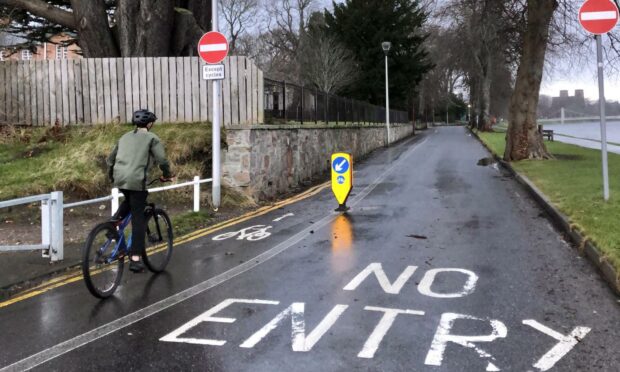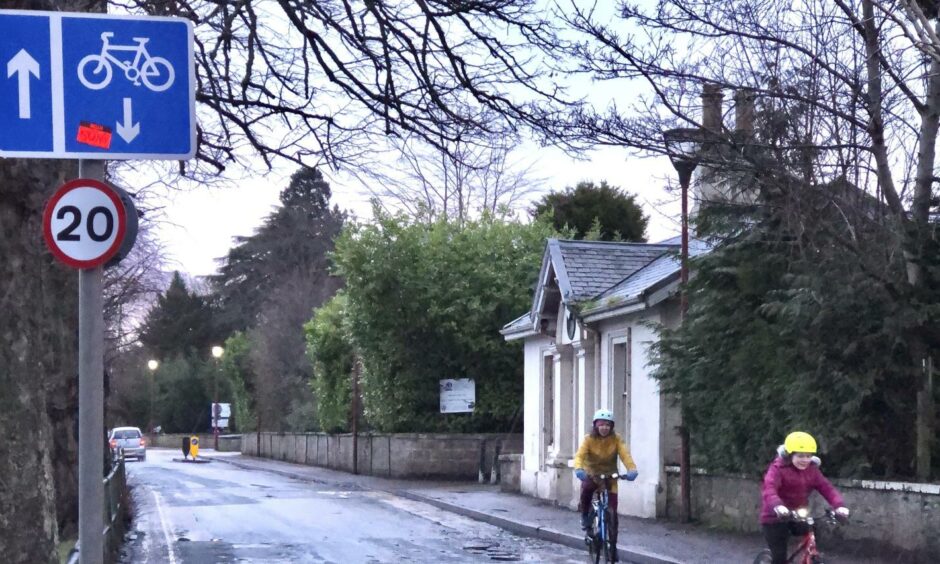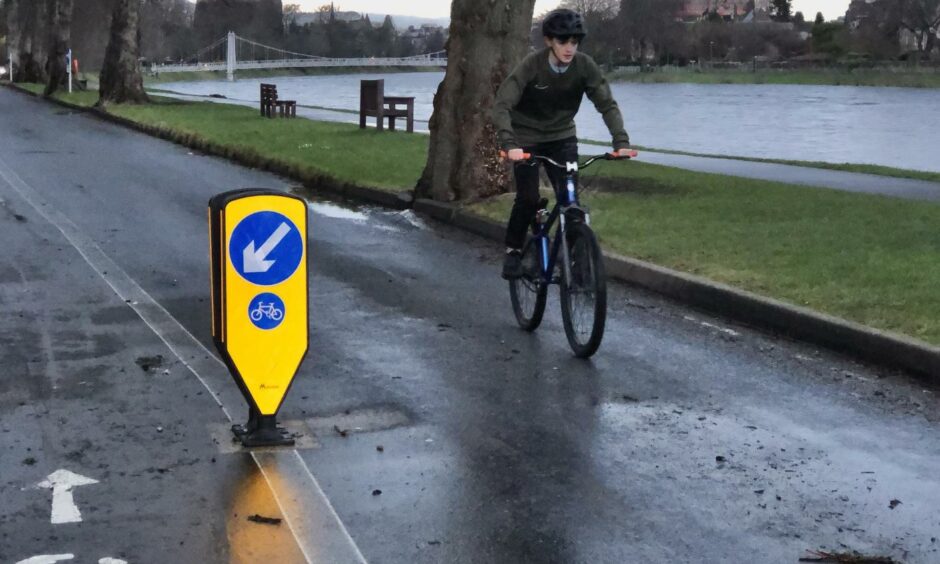Active travel campaigners have welcomed a decision to retain a one-way traffic system in Riverside Way in Inverness and hope similar measures will follow.
Highland Council’s Inverness city committee voted 12-7 on Thursday in favour of keeping the controversial setup.
The authority can now make permanent a traffic regulation order (TRO) for a one-way system with cycling contraflow.
Split opinions
The situation split opinion. Officially, 14 people objected to the plan while 18 were in favour.
Much of the opposition came from residents and Ballifeary Community Council who said the one-way system had created a “rat run”.
They raised concerns about increased traffic and speeding.
Local councillors Bill Boyd and Alex Graham tabled an amendment against the scheme despite supporting active travel in principle.
Councillor Boyd said guidance from the walking, wheeling and cycling charity Sustrans highlights speed and traffic volume can increase when a street becomes one-way.
Councillor Graham summed up the mood of those opposed when he said: “Just because we support active travel doesn’t mean we have to support every active travel scheme that comes before us.
“I will vote for what works, and this doesn’t.”
But Dr Bridie Barnett, of Highland Healthcare for Climate Action, said the decision is an “important and positive outcome”.
She said: “The 12 councillors who voted in favour of keeping the traffic regulation order, making the route one way with cycle lane contraflow, showed insight and vision into the necessity to improve safe active travel options for the citizens of Inverness.
“It is paramount that people in Inverness can choose healthier, active ways to travel around the city.”
She said active travel directly benefits health, while reducing motor vehicle use and improves air quality.
Hopes of further active travel measures
“As travelling actively becomes safer and easier in and around the city then it may become the preferred option and lead to a reduction in car traffic, thereby further reducing air pollution and traffic congestion.
“We hope that further active travel infrastructure will be introduced along with traffic calming measures to make this a truly beautiful city to live and work in, and to visit.”
The decision was also backed by Kat Heath, a founding member of Kidical Mass Inverness, which campaigns for more and safer spaces for cyclists.
“It’s great to see the council prioritising children being able to cycle, walk and wheel safely to their leisure centre, Whin Park, pump track and skate park, crazy golf over cars today.
“The cycle lane makes it safer for our older children to access these vital facilities independently, in addition to families cycling together.
“There’s been some great work done by the active travel team and Kidical Mass is really pleased that the city’s children will have a safe way to get to such key infrastructure.
“This project will help reduce car use in the city making it a cleaner, safer city for our children and we appreciate the leadership and vision shown by many of our councillors today.
A positive step
“We’re hoping this is a positive step towards more development of the active travel network in the future.”
Krissy Gibbs, who is disabled and uses an electric bike, said the decision is an important move towards creating more active travel routes in Inverness.
“I understand why some people don’t like it and want to take it away.
“But, with the impacts of global warming, shouldn’t we be pushing hard in the direction of encouraging active travel instead of encouraging and facilitating more car traffic?”


